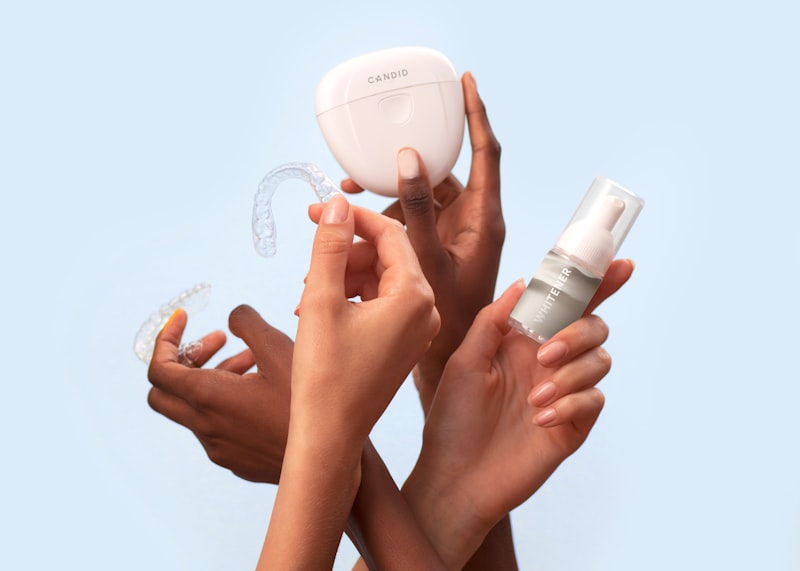Regular brushing and flossing are essential habits for implant care. Use a soft-bristled toothbrush and non-abrasive toothpaste to gently clean around the implant and gumline. Flossing helps remove plaque and debris from between teeth and implants, reducing the risk of gum disease and infection.
Routine dental visits are equally important. Your dentist will assess the implant’s condition, clean hard-to-reach areas, and provide professional advice on oral hygiene techniques tailored to implants. These visits also include regular examinations to detect any issues early and ensure timely intervention.
Avoiding hard foods and sticky candies is advisable as they can damage implants and surrounding tissues. Opt for a balanced diet rich in nutrients that support oral health, such as calcium, vitamin D, and antioxidants. Maintaining overall oral hygiene, including cleaning the tongue and using mouthwash, further enhances the health of implants and gums.
It’s essential to quit smoking and limit alcohol consumption as they can compromise the success of dental implants. Smoking inhibits healing and increases the risk of implant failure, while alcohol can dry out the mouth, leading to bacterial growth and oral health problems.
In summary, caring for dental implants involves consistent oral hygiene practices, regular dental check-ups, a balanced diet, and avoiding habits detrimental to oral health. By prioritizing these habits, you can ensure your dental implants remain functional and healthy for years to come.
The Ultimate Guide: Proper Care Tips for Your Dental Implants
Dental implants are a remarkable solution for replacing missing teeth, offering both functionality and aesthetic benefits. However, ensuring their longevity and maintaining oral health requires diligent care. Proper care tips for your dental implants are crucial in preventing complications and enjoying a confident smile.
Firstly, maintaining consistent oral hygiene is paramount. Brushing your teeth twice daily with a soft-bristled brush and using a low-abrasive toothpaste helps in keeping plaque at bay without damaging the implant or surrounding tissues. Flossing is equally important to clean between teeth and implants where a brush cannot reach.
Regular dental check-ups are essential. Your dentist can assess the implant’s stability, gum health, and overall oral hygiene. Professional cleanings remove any hardened plaque (calculus) that regular brushing and flossing might miss, ensuring optimal oral health.
Protecting your dental implants from potential damage is crucial. Avoid chewing hard objects like ice or using your teeth as tools to prevent fractures or loosening of the implant. Similarly, abstain from smoking and limit consumption of staining substances like coffee and red wine to maintain the implants’ natural appearance.
Understanding your implants’ care requirements also involves knowing potential signs of trouble. Persistent discomfort, swelling, or unusual sensations around the implant area should prompt immediate dental consultation.
Caring for your dental implants involves a blend of regular oral hygiene practices, professional dental visits, and mindful habits. By adopting these care tips, you can prolong the lifespan of your dental implants and ensure a healthy, confident smile for years to come.
Maintaining Your Smile: Essential Dental Implant Care Practices
So, you’ve decided to enhance your smile with dental implants—great choice! Now, let’s talk about how to keep that smile sparkling for years to come with proper care practices.
First off, dental implants are a long-term investment in your oral health. Just like with natural teeth, they require regular attention and care to maintain their durability and aesthetics. Here are some essential tips to ensure your dental implants stay in top-notch condition:
-
Daily Oral Hygiene Routine: Treat your implants like natural teeth. Brush at least twice a day and floss daily to remove plaque and food particles that can lead to gum disease and implant complications.
-
Use Implant-Safe Oral Products: Opt for toothpaste and mouthwash specifically designed for dental implants. These products are gentler on the implant materials and help maintain a healthy balance in your mouth.
-
Regular Dental Check-ups: Don’t skip your dental visits. Regular check-ups allow your dentist to monitor the health of your implants, assess your oral hygiene practices, and address any issues early on.
-
Avoid Hard and Sticky Foods: While dental implants are durable, they can still be damaged by excessive force. Avoid chewing on hard objects like ice cubes or opening packages with your teeth. Sticky foods can also contribute to plaque buildup around the implant.
-
Quit Smoking: Smoking can significantly impact the success of your dental implants. It reduces blood flow to the gums, slows down healing after surgery, and increases the risk of implant failure. If you smoke, quitting is one of the best things you can do for your oral health.
-
Protect Your Implants: If you participate in contact sports or grind your teeth at night, consider wearing a mouthguard. This protective gear helps prevent trauma to your implants and natural teeth.
By following these essential care practices, you can ensure that your dental implants not only enhance your smile but also contribute to your overall oral health. Remember, a healthy mouth leads to a confident smile!
Long-Term Success: Expert Tips for Caring for Dental Implants
So, you’ve made the wise choice of getting dental implants—congratulations! Now, let’s ensure they last a lifetime with some expert care tips. Think of your dental implants as sturdy anchors for your smile, and just like a ship needs good maintenance to sail smoothly, your implants need regular attention too.
First things first, brushing and flossing are your new best friends. Treat your implants like natural teeth—brush them twice daily with a soft-bristled brush and non-abrasive toothpaste. Flossing helps remove plaque and food particles from hard-to-reach places, ensuring your gums stay healthy and your implants remain pristine.
Regular dental visits are crucial. Schedule check-ups every six months with your dentist. They’ll inspect your implants, clean them thoroughly, and address any issues early on. Prevention is key to avoiding complications down the road.
Protect your investment by avoiding bad habits. Quit smoking if you haven’t already—tobacco can weaken bone structure and increase the risk of implant failure. Similarly, limit your intake of sugary foods and acidic drinks, which can erode enamel and damage gums.
Maintaining overall oral health impacts your implants too. A balanced diet rich in vitamins and minerals strengthens your teeth and gums, supporting the longevity of your implants. Remember, what you eat affects your entire mouth ecosystem.
Stay proactive and vigilant. If you notice any discomfort, swelling, or unusual sensations around your implants, don’t hesitate to contact your dentist. Early intervention can save you from more significant problems later.
Lastly, embrace patience. Rome wasn’t built in a day, and neither are healthy smiles. Your implants need time to integrate with your jawbone fully. Follow your dentist’s instructions diligently during the healing process—it’s the foundation for long-term success.
With these expert tips, caring for your dental implants becomes second nature. Treat them well, and they’ll reward you with a confident smile for years to come.
Daily Habits for Healthy Implants: Care Tips You Need to Know

Taking care of your dental implants is crucial for their longevity and your oral health. Just like natural teeth, implants require regular maintenance to stay healthy and functional. Incorporating daily habits into your routine can make a significant difference in how well your implants fare over time.
Firstly, brushing your implants after meals is essential. Use a soft-bristled toothbrush and non-abrasive toothpaste to gently clean around the implant and gum line. This helps prevent plaque buildup, which can lead to gum disease and implant complications.
Flossing is equally important. Regular flossing removes food particles and plaque from between teeth and implants where a toothbrush can’t reach. It keeps your gums healthy and reduces the risk of inflammation.
Another vital habit is using an antimicrobial mouthwash. Rinse your mouth with a dentist-recommended antimicrobial mouthwash to kill bacteria and maintain oral hygiene. This step is especially beneficial for areas around implants that may be harder to clean with brushing and flossing alone.
Avoiding hard and sticky foods can also prolong the life of your implants. Hard foods can damage the crown or implant structure, while sticky foods can leave residue that is difficult to remove and can contribute to bacterial growth.
Regular dental check-ups are crucial. Schedule appointments with your dentist every six months for professional cleanings and exams. Your dentist will assess the health of your implants and address any concerns before they become serious issues.
Lastly, maintaining overall oral hygiene impacts the success of your implants. Good habits like drinking plenty of water, eating a balanced diet, and quitting smoking contribute to healthy gums and strong bone structure that support your implants.
By following these daily habits, you can ensure your dental implants stay healthy and functional for years to come. Taking proactive steps in your oral care routine not only benefits your implants but also enhances your overall dental health.
Protecting Your Investment: Effective Care Techniques for Dental Implants
Imagine this: you’ve just had your dental implants placed, and they look and feel amazing. But how do you make sure they stay that way? Well, it’s all about effective care techniques. Think of your dental implants like prized possessions—you wouldn’t neglect a valuable item, right?

First off, brushing and flossing are your best friends. Treat your implants like natural teeth. Brush at least twice a day with a soft-bristled toothbrush and non-abrasive toothpaste. Don’t forget to floss daily to remove any lingering food particles and plaque.
Next, regular dental check-ups are crucial. Your dentist will keep an eye on your implants and ensure everything is in tip-top shape. They can spot any issues early on and provide professional cleanings to keep your implants sparkling clean.
Now, let’s talk about what not to do. Avoid chewing on hard objects like ice or using your implants to open bottles (ouch!). These habits can damage your implants and even lead to costly repairs down the road. Remember, they might be strong, but they’re not invincible.
Oh, and if you’re a night grinder, consider wearing a nightguard. Grinding can put excessive pressure on your implants and natural teeth, which isn’t good for either. A nightguard acts as a cushion, protecting your investment while you sleep peacefully.
Lastly, maintain a healthy lifestyle. What’s good for your body is good for your implants too. Eat a balanced diet, limit sugary snacks, and quit smoking if you haven’t already. Your implants will thank you!
So, there you have it—effective care techniques for your dental implants. Treat them well, and they’ll serve you well for years to come. Now, go flash that confident smile!
Frequently Asked Questions
What are common signs of dental implant problems?
Learn about common signs indicating potential issues with dental implants, such as persistent pain, swelling, gum recession around the implant, mobility or looseness of the implant, discomfort when chewing, and changes in bite alignment. Early detection of these signs can help in timely intervention and maintenance of dental implant health.
How should I clean and maintain my dental implants daily?
Learn how to properly clean and maintain your dental implants daily with these essential steps: Use a soft-bristle brush and non-abrasive toothpaste twice a day. Floss carefully around the implant areas to remove plaque buildup. Consider using an interdental brush or water flosser for thorough cleaning. Avoid harsh chemicals or abrasive tools that can damage the implant surface. Regular dental check-ups and professional cleanings are crucial to ensure long-term implant success.
How long do dental implants last with proper care?
Learn about the longevity of dental implants with proper care. Discover how long dental implants can last when maintained correctly, ensuring lasting functionality and oral health benefits.
What foods should I avoid after getting dental implants?
Learn which foods to avoid after getting dental implants to ensure proper healing and avoid complications. Stick to soft, non-sticky foods and avoid hard, crunchy, or chewy items that can strain the implants or disrupt healing.
Can I brush my dental implants like natural teeth?
Yes, you can brush your dental implants just like natural teeth. Use a soft-bristled toothbrush and non-abrasive toothpaste to gently clean around the implant and gumline twice daily. Regular brushing helps maintain oral hygiene and prolong the lifespan of your dental implants.


